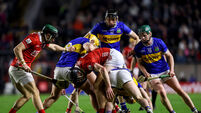Bush admits war decision based on faulty intelligence
“We cannot and will not leave Iraq until victory is achieved,” he said.
The president said that today’s parliamentary elections in Iraq are a watershed moment that will inspire democracy across the Middle East.














